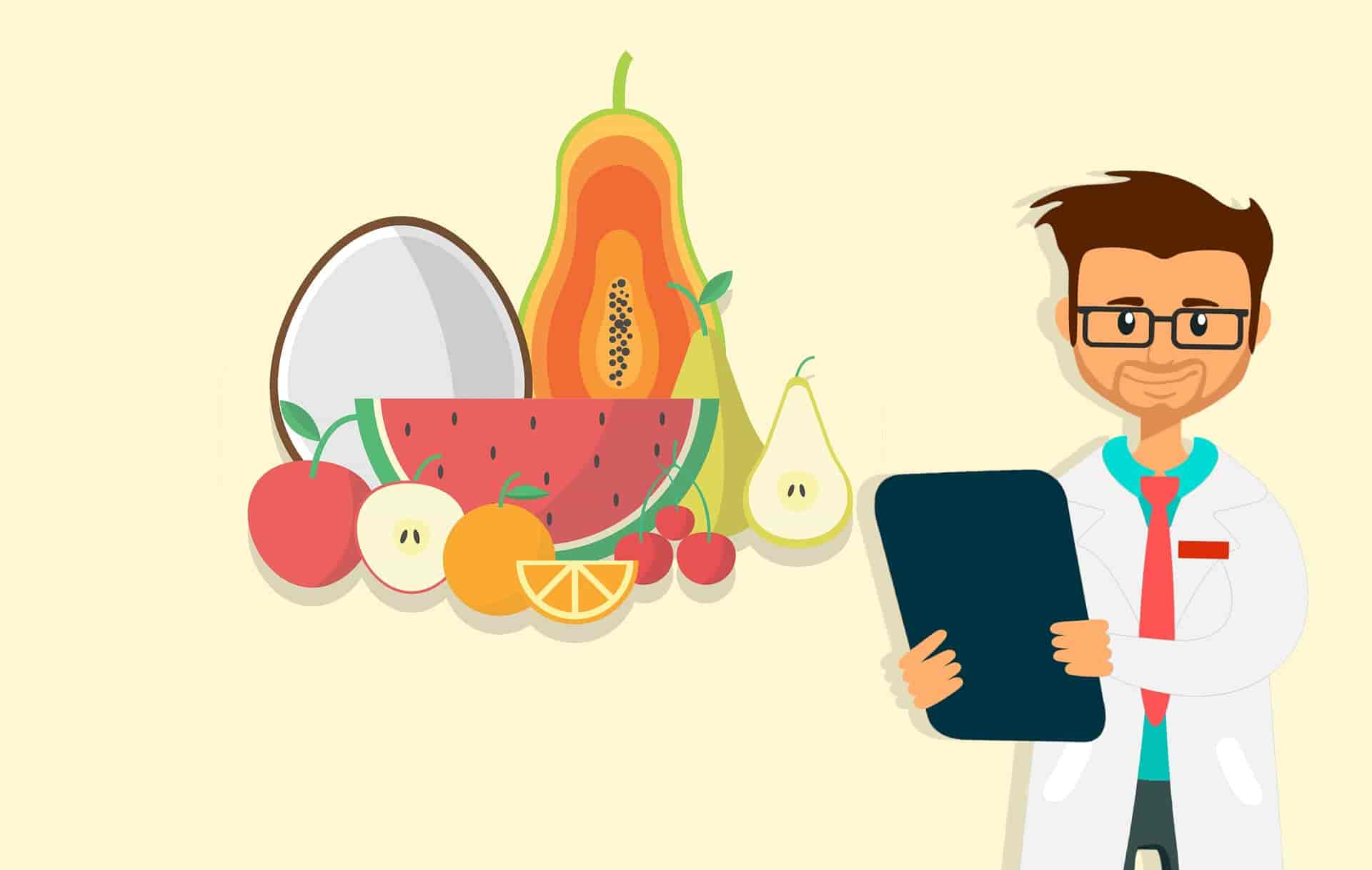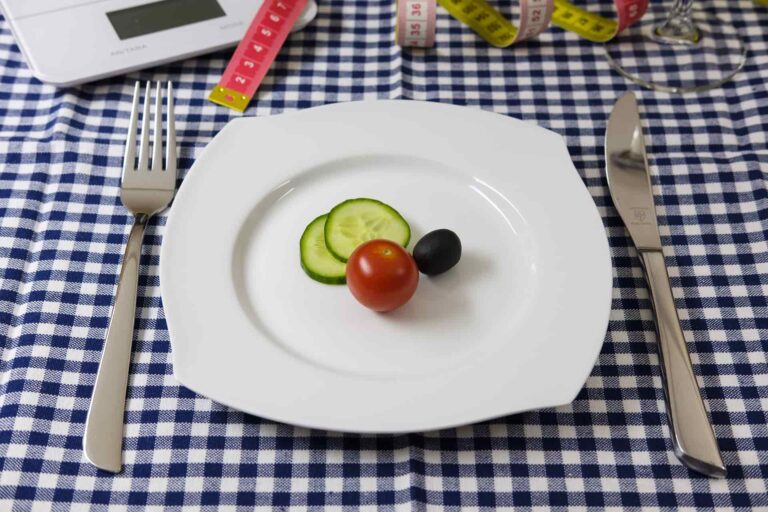Top 10 Fruits for Weight Loss
Do you fancy something sweet? With these ten fruits you can not only outwit your cravings, they are also low in calories and therefore the perfect fruit for weight loss.
In addition to whole grain products and healthy fats , a healthy diet also includes an adequate intake of fruit and vegetables. The plants provide important minerals and vitamins as well as plenty of water.
Those who want to lose weight should especially consume foods with a low calorie density and high fiber and nutrient content. The following types of fruit are therefore perfect for a diet.
1. Apple
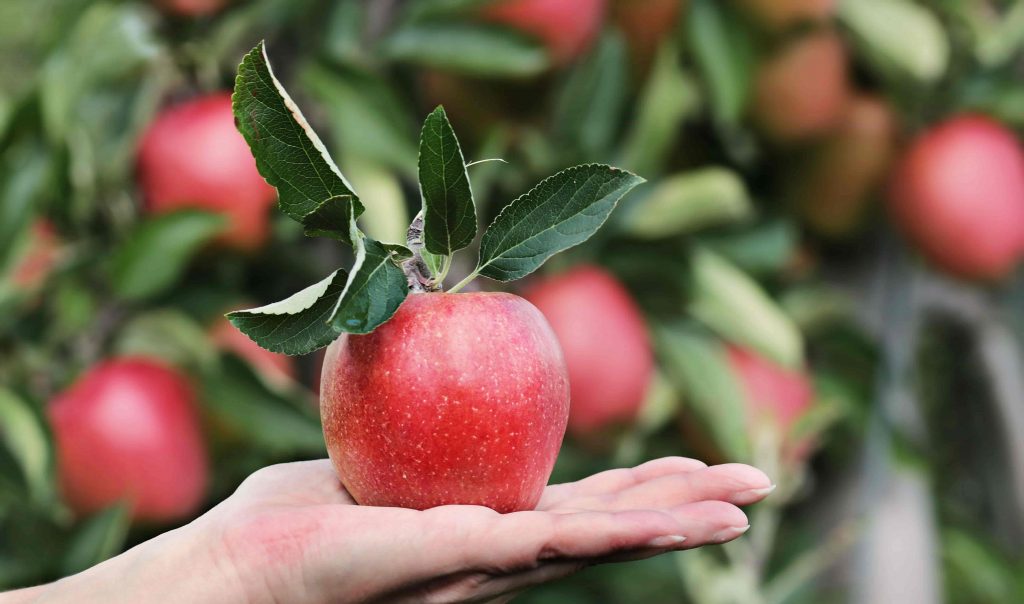
With 70 kilocalories per piece, apples are one of the fruits with a low calorie density. The main reason for this is their high water content of over 80 percent.
The soluble fiber contained in the shell not only stimulates digestion, it also serves as food for the good intestinal bacteria and keeps you full for a long time. An apple for dessert or as a snack in between prevents you from reaching for other high-calorie alternatives.
In a study with over 100,000 participants, researchers came to the conclusion that the daily consumption of apples can have a positive influence on body weight for years.
2. Avocado

Incredible but true: Avocados are not just a berry and, despite their high fat content, can be counted as a fruit for weight loss.
In a study of 26 healthy, overweight participants, researchers found that adding half an avocado to lunch increased satiety and decreased the desire to eat within the next five hours.
In addition, a whole avocado as part of a fat-neutral diet has positive effects on cholesterol levels. It is important that the avocado is not only added to the diet, but also replaces other sources of fat.
Avocados also provide plenty of potassium, vitamin K and folic acid, which is particularly important for pregnant women.
3. Banana
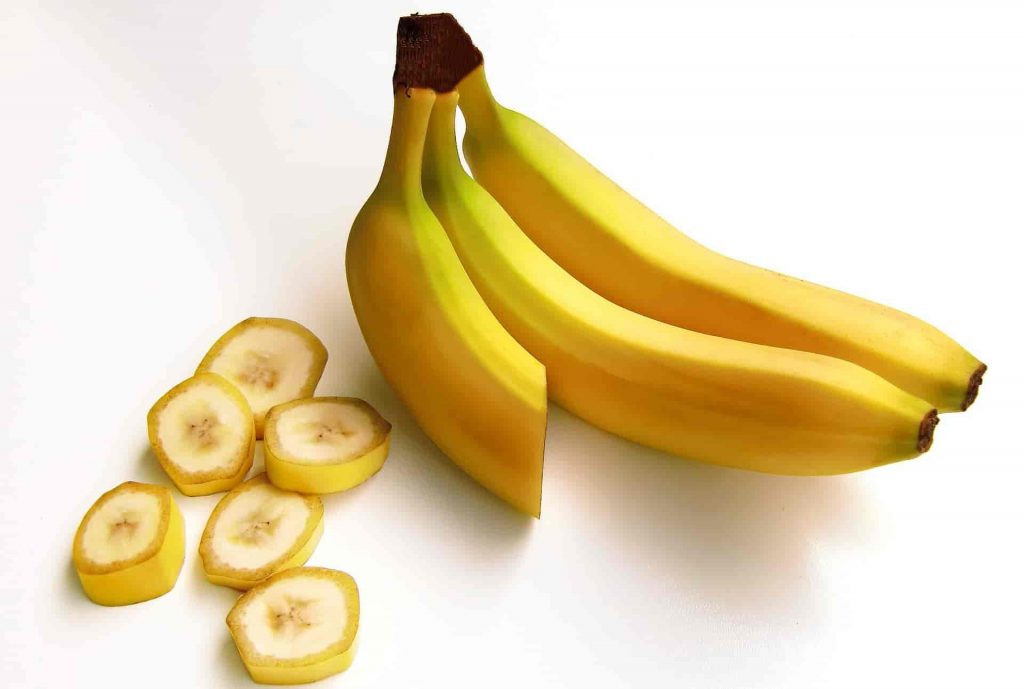
Bananas, like avocados, are calorie-dense types of fruit, but thanks to their low glycemic index they also keep the blood sugar level constant and thus ensure that fewer cravings occur.
Especially for people with diabetes, a constant blood sugar level is associated with fewer complications and a lower HbA1c value. At the same time, consuming bananas every day reduces cholesterol levels as well as blood pressure in people with high blood pressure.
With a calorie content of 140 kilocalories per piece, the banana provides important micronutrients such as potassium, magnesium, manganese and antioxidants that protect the cells from free radicals.
4. Berries
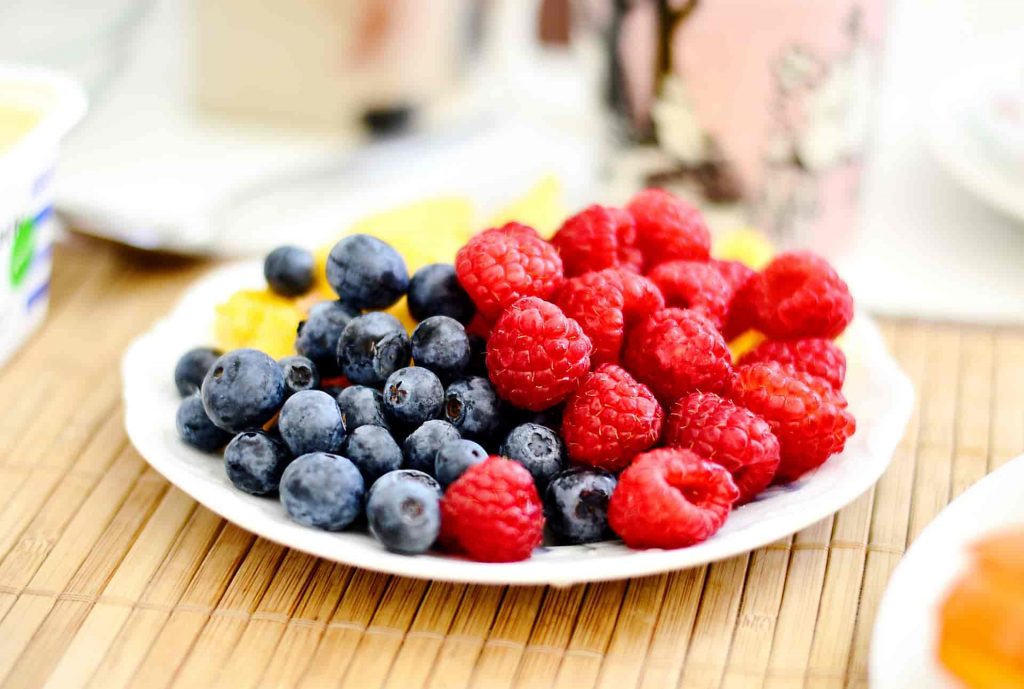
Berries include, for example, raspberries, blueberries, and strawberries. They are all characterized by a low calorie density with a high nutrient density. 100 grams of raspberries contain only 43 kilocalories, but plenty of folic acid, vitamin C, potassium and calcium.
In addition to 46 kilocalories per 100 grams, blueberries contain a particularly large number of antioxidants that protect cells from damage and the skin from aging.
Pure as a snack or with yoghurt and oatmeal for breakfast, berries are the perfect fruit for weight loss or in a conscious diet.
5. Grapefruit
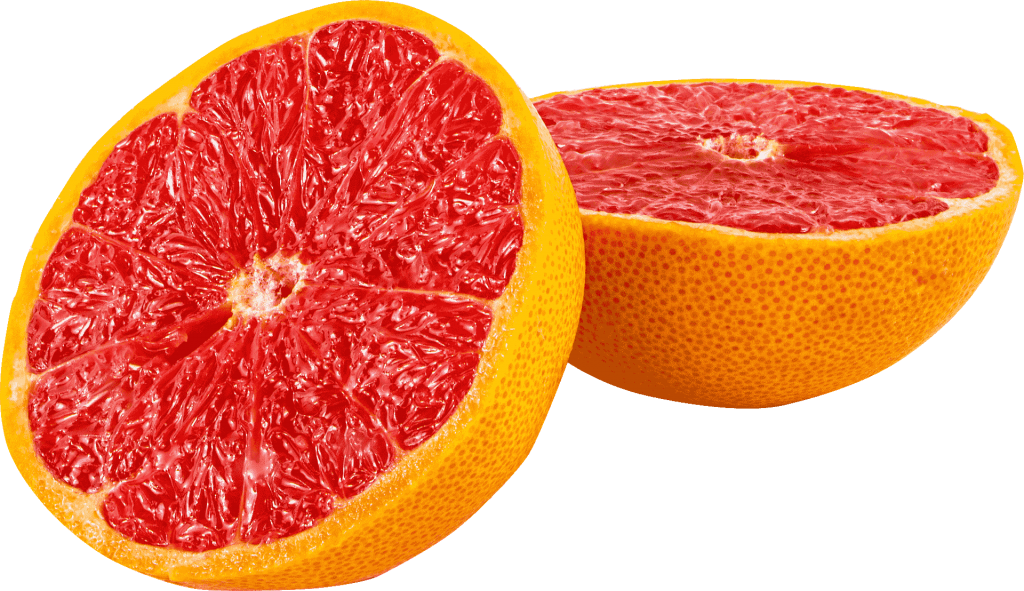
As a citrus fruit, grapefruits are best known for their high vitamin C content. Half a grapefruit already covers 50 percent of the recommended daily intake. As a fruit for weight loss, the fruits are particularly suitable because of their low calorie density (45 kilocalories per 100 grams) and their low glycemic index.
In a study with 85 obese (BMI 30-39) participants, the intake of grapefruit or grapefruit juice before meals was associated with lower calorie intake and weight loss. The fruit also had positive effects on cholesterol levels.
6. Cherries
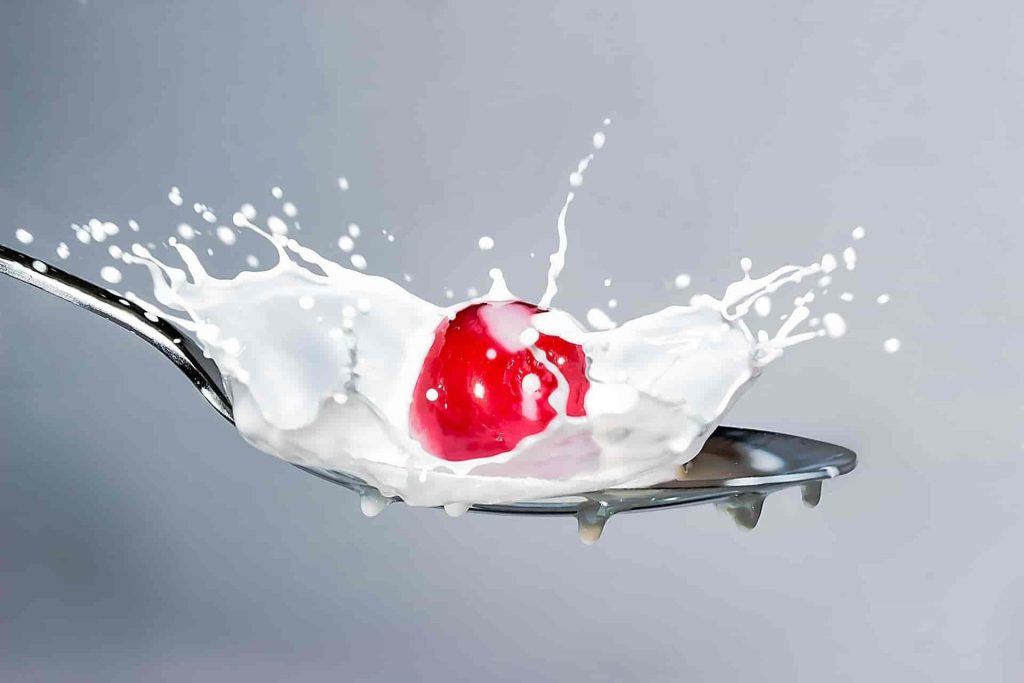
Cherries belong to the stone fruits and are rich in potassium, manganese and phosphorus. The trace element manganese is involved in the formation of bones and cartilage, and it also contributes to the synthesis of proteins and fats. Since the substance is also involved in the production of the happiness hormone dopamine, eating cherries can even make you happy.
In the diet, cherries are a great low-calorie (65 calories per 100 grams) snack instead of chips or biscuits. The perfect fruit for weight loss!
7. Kiwi
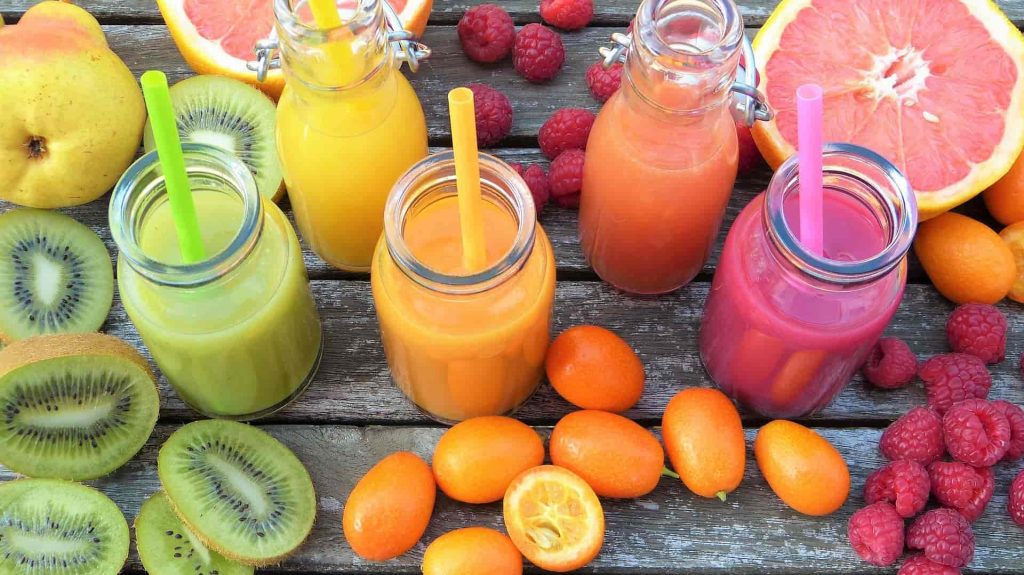
The small fruits are perfect, peeled or unpeeled, as a healthy snack that keeps you full for a long time due to its high fiber content (approx. 3 grams per piece).
At the same time, kiwis have a low glycemic index. This means that the blood sugar level remains constant and food cravings are counteracted.
A study of prediabetics found a significant association between consuming two kiwifruit a day and decreasing blood pressure and hip circumference.
8. Passion fruit
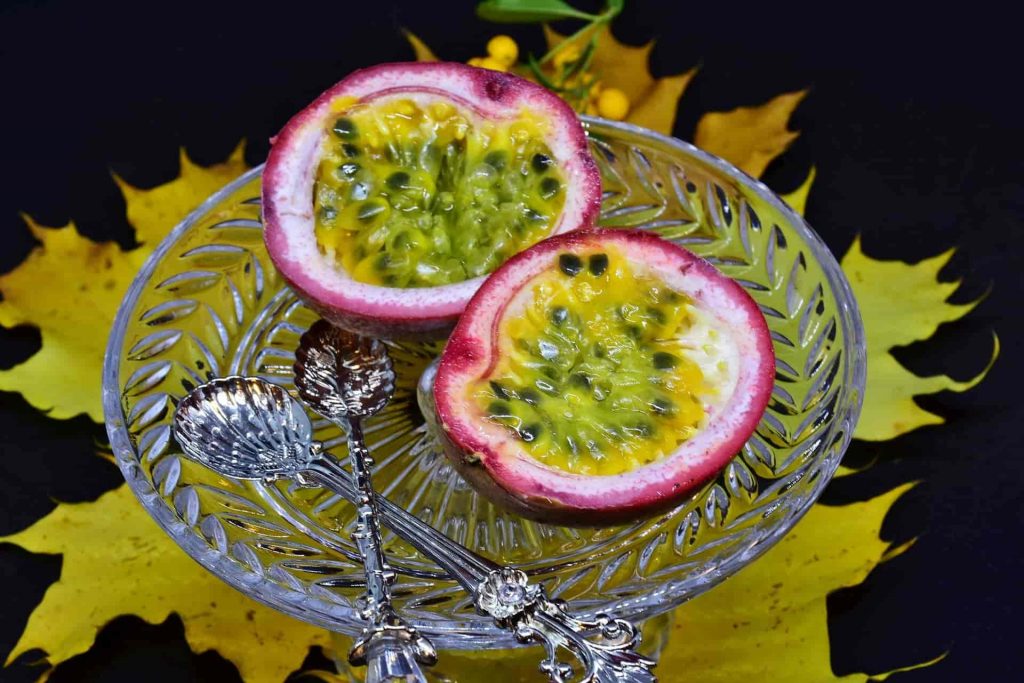
Maracujas or passion fruits are exotic fruits with a pithy, slightly sour pulp. The fruits taste best when they are already wrinkled on the outside.
With 13 kilocalories each, they provide very little energy, but are rich in the micronutrients vitamin C, folic acid, beta-carotene and potassium. Beta-carotene is important for the eyes and nerves, while potassium protects muscles, especially the heart.
The substance piceatannol contained in passion fruit has been linked in studies with the improvement and tightening of the skin and the insulin sensitivity of overweight men. However, further research is needed here.
9. Melon
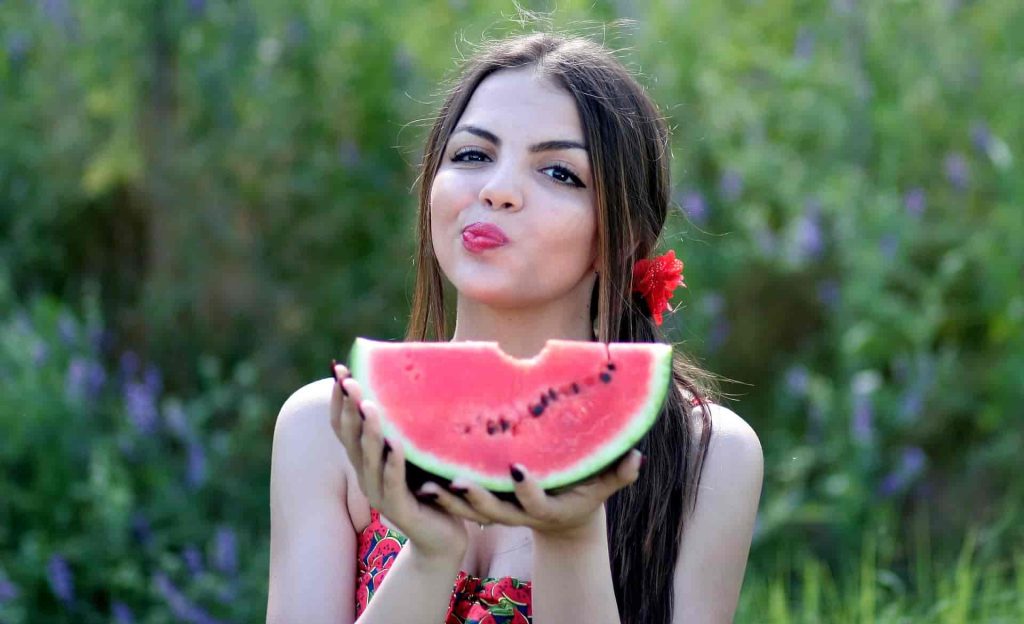
Pure water: Although watermelon, honeydew melon and Galia melon are so sweet, they consist of around 90 percent water and are therefore the perfect fruit for weight loss in summer.
Plus, you can eat a large serving of 250 grams of watermelon for under 100 kilocalories. The abundant water content keeps you full for a long time and, especially in summer, it protects against dehydration. Be careful with other types of melon: honeydew melon, for example, provides almost 50 kilocalories more with the same portion.
Caution: Despite the low calorie density and the high water content, you should limit your melon consumption, because the fruits have a high glycemic index, which counteracts keeping the blood sugar level constant. This is especially dangerous for diabetics and also promotes food cravings.
10. Orange
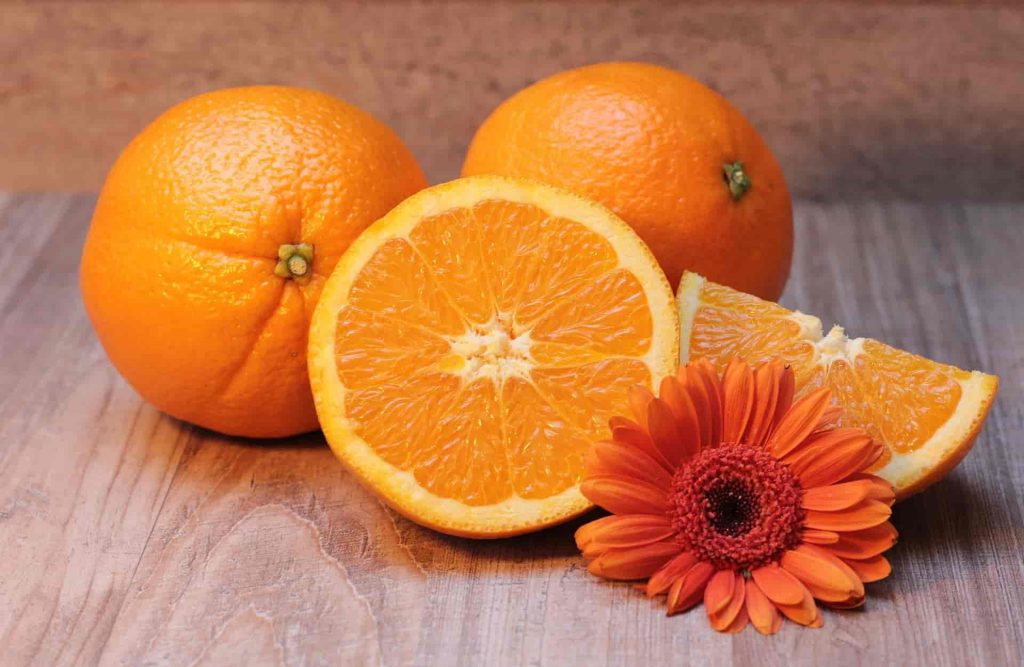
Citrus fruits are not only characterized by their high vitamin C content, but also by their low calorie density. A medium-sized orange only has around 100 kilocalories, but already covers 20 percent of the recommended fiber intake. Fiber reduces appetite and keeps the intestines healthy .
But if you want to lose weight, you should avoid oranges in juice form. On the one hand, orange juice from the supermarket often contains a lot of sugar; on the other hand, studies have found that consuming a whole fruit keeps you full longer than the same amount of juice.
The right preparation
When it comes to losing weight, the selection of foods and their preparation are crucial. While you should use low levels of fat and salt when cooking and frying vegetables, there are other things to look out for when preparing fruit.
With bowl, please! : If possible, always eat the fruits with their peel, because this is where most of the nutrients and the filling fiber are hidden. Apple, kiwi and all kinds of berries just need to be washed and dried well before they are consumed. With other fruits like citrus fruits and bananas, however, the peel is not suitable for consumption.
Pure enjoyment: The fruits are the healthiest and best suited for the diet if you consume them pure. When processing apples and berries into cakes and compotes, a lot of sugar is usually added, which increases the calories per serving? If you want to add a little liquid to a delicious fruit salad, use your own apple or orange juice instead of purchased ones. Also you can check a nice top 10 fruits for weight lose video here
FAQs – the most common questions
How much fruit should i eat per day to lose weight?
Which fruit is not suitable for losing weight?
Does it make a difference to losing weight whether I eat fruit in the morning or in the evening?
Knowledge to take away
Since a healthy diet is essential for a successful diet, fruit should also be a regular part of your eating plan. Fruits that are particularly suitable for weight loss are those varieties that have high water content, a low glycemic index and a lot of fiber.
When consuming the fruits, make sure that they are unprocessed and unsweetened. Consuming two handfuls of fruit per day, whether on a diet or not, is recommended.
